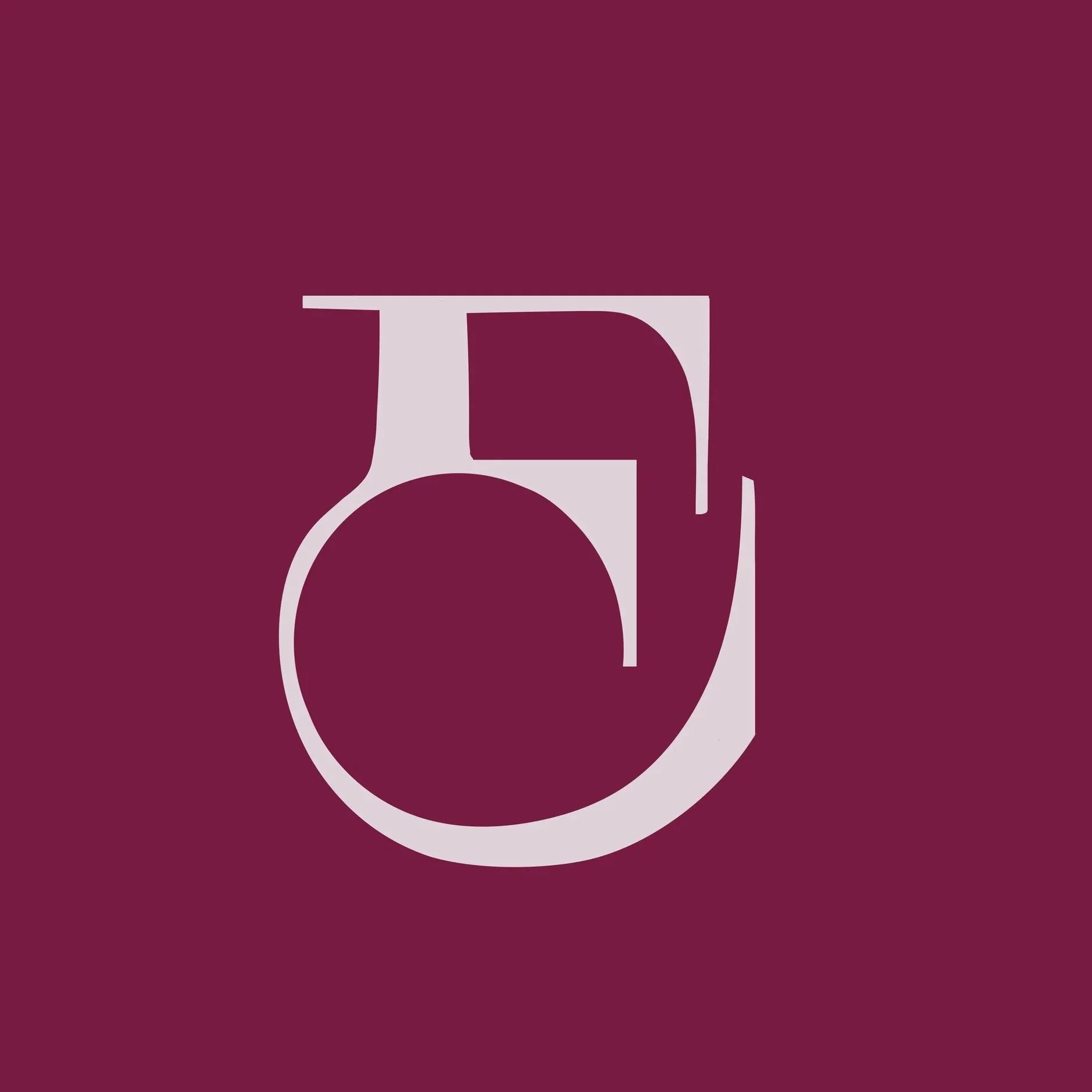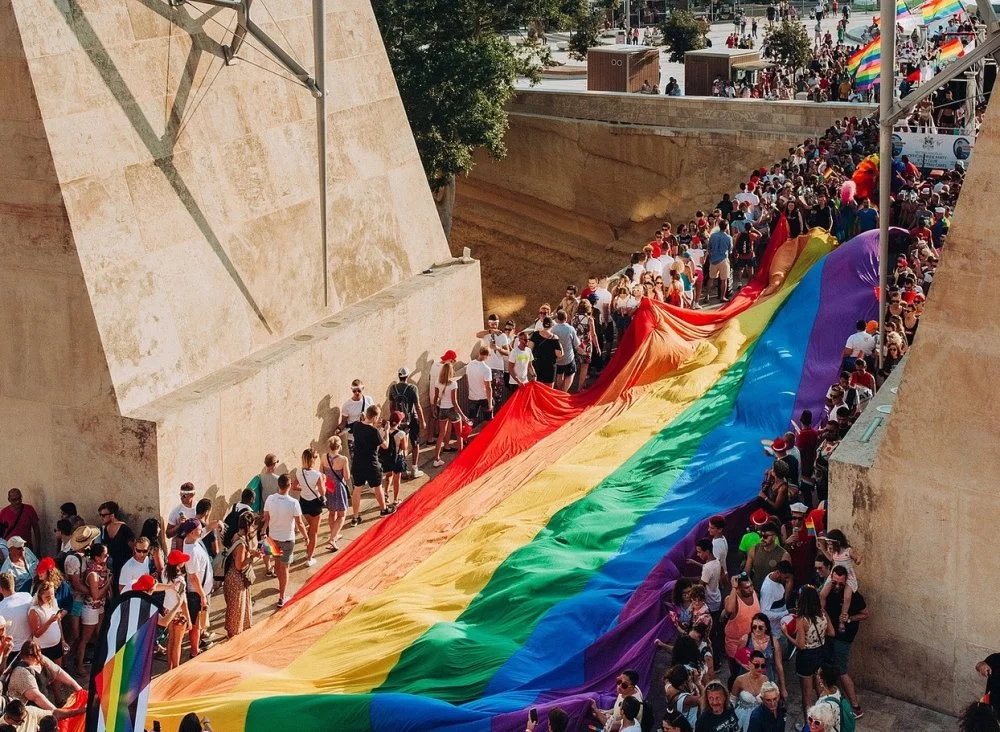“Ugwaljanza mill-qalb”
“Equally from the heart”
by Isabella Rollings
Image courtesy of EuroPride
The tiny country of Malta is one most have never heard of. Just twice the size of Washington, D.C., it is so small that one can drive across the whole country in an hour. Situated in the Mediterranean in between Italy and Tunisia, its geographical location consequenced a vast history of invasion and occupation. Under Byzantine, Arab, Italian, Spanish, Ottoman, French, and British rule for many years, the country finally gained independence on September 21, 1964. During World War II, Malta was the heaviest bombed country in the world, with over 6,700 bombs dropped. One still lays intact in the Mosta Church, untouched and unexploded— what many call a miracle. Due to its vulnerable location in the middle of the sea, delivering food and resources by ships was so difficult during this time that the island’s population starved. The St. George’s Cross was awarded to the Maltese people for their bravery and resilience during this horrific period, which is now displayed proudly on the flag.
Although there is a rich history of Islamic belief, by the 15th-century gradual Christianization of the island had occurred and the population shifted to become predominantly Catholic. Whilst in the United States there are heavy connotations of religious standpoints with political ones, in Malta, this relationship is quite different. As one of the world’s most Catholic countries, it is simultaneously one of the most progressive for LGBTQ+ rights.
ILGA-Europe has consistently ranked Malta first in Europe for its LGBTQ+ rights legislation since 2015. Same-sex marriage was legalized in September 2017, with adoption from same-sex couples being consequently legitimized. Since 2004, anti-gay discrimination in the workplace has been banned, with anti-discrimination policies expanding more broadly henceforth. In 2016, Malta was the first European country to both prohibit conversion therapy and include gender identity in legalized protection against discrimination. Malta was the first country in the world to prohibit sterilization and invasive surgery on intersex people. People are permitted to legally change their gender on official documents regardless of any medical procedures they have or haven’t had. Maltese passports, identity cards, and other forms of official identification have had an ‘X’ sex designation since 2017.
June in the United States is an explosion of rainbow flags, colorful logos, and inclusive slogans in the storefronts of workplaces and businesses. Culminating in a massive Pride March down Fifth Avenue, it is easy to associate these rainbows and colors just with celebration. Although mass celebration of LGBTQ+ peoples is beautiful and necessary, these marches were not always celebrations— they were protests.
Moving forwards, as LGBTQ+ rights are legislatively better than those of the past, it is critical to remember all that has been accomplished and all that needs to be accomplished. Whilst flags and rainbows are beautiful and representative, concrete knowledge and action on LGBTQ+ acceptance needs to be prioritized, both within the United States and every other country on this earth.
From September 7 to 17, Malta hosted EuroPride, an international event held in a different European country each year. Despite being the smallest capital city in Europe, the event attracted almost 40,000 people.
In the bid video to host EuroPride, Allied Rainbow Communities pitched four main aims. The first was that “a platform is given to human rights organizations and activists that are working in neighboring communities that still experience state-sponsored homophobia.” On September 12, a panel was held to raise awareness of family violence against LGBTQ+ persons and how to employ safeguarding strategies. Panelists included Colette Farrugia Bennett from Aġenzija Appoġġ (an agency for inclusive welfare services) and Claire Azzopardi from the Department of Gender and Sexuality at the University of Malta. There was also a discussion of LGBTQ+ representation in education, where professionals discussed what measures to take to ensure each child feels represented at their school, whether it be in Malta or elsewhere.
Image courtesy of MaltaToday
The second aim was that “artists within the queer scene are given ample opportunity to express themselves freely without bias or prejudice from others.” From this, a multitude of creators produced art, performances, and exhibitions to highlight the importance of queer self-expression. From August 11 to September 17, an exhibition of work from artists and activists from 11 Mediterranean countries explored themes of resistance, liberation, and expression of LGBTQ+ identities. The exhibition included pieces on the intersections of socioeconomic issues, nationalism and colonialism, genital mutilation, and legal gender recognition.
The biggest event was the EuroPride March on September 16, where the streets of Valletta and Floriana were painted in vibrant kaleidoscopes of rainbows and sandstone walls echoed with powerful sounds of celebratory chants. On the same day, Christina Aguilera headlined a concert with supporting acts from Maltese artists Ira Losco, Emma Muscat, The Travellers, and a drag show performance from Queenz.
The next aim of the Allied Rainbow Communities was to “provide a space for interfaith dialogue and community discussions on topics that are not talked about enough.” As a country of principally Catholic belief, events were held during Pride to discuss the complex relationship between religion and queerness, and to distribute educational information about the accomplishable coexistence of LGBTQ+ identities with religious ones. There was an interfaith celebration at one of the oldest prehistoric temples in Malta and a forum discussion encompassing queer people from different faiths talking about their relationships with their identity.
On September 10, a panel was held to discuss the Maltese language and how it could be made more inclusive for LGBTQ+ terms. Due to its rich cultural history, the Maltese language is an interesting hybridization. Closely related to Algerian and Tunisian dialects of Arabic with a heavy Italian influence, it is the only Semitic language to be written in the Latin alphabet. As Italian and Arabic are both gendered languages, the hybridization of the two as large components of the construction of Maltese subsequently made the language gendered. Additionally, a September 13 discussion with activists and healthcare professionals highlighted the importance of trans healthcare.
Image courtesy of Gay45
The final aim was to “push forward for full LGBTQ+ inclusivity in the workplace.” On September 11, this aim was realized in a discussion focusing d on performative pinkwashing versus affective allyship for the LGBTQ+ community. Here, conversation unpicked political and corporate logistics to employ strategies of authentic support from a business standpoint. There was also a conference on LGBTQ+ Rights in the New World of Work, with conversations on the challenges of LGBTQ+ existence in the workplace and proposed procedures to curate a safe and inclusive work environment.
EuroPride in Malta 2023 was a deeply educational, beautifully celebrational, and touchingly expressive representation of the strides the country has taken for its LGBTQ+ peoples. Intricacies of LGBTQ+ intersections with religion, healthcare, and politics are extensive and thus imperative to be socially discussed and personally reflected upon. When Pride events exist as a synthesis of celebration and active educational progression, we can envision a world where all can hold true respect to those who have fought— and are still fighting— to exist freely as they are.
Maltese politician Rebecca Buttigieg expressed how this year’s EuroPride sent a “powerful message that we must not rest on our laurels but continue to celebrate diversity, challenge discrimination, and inspire change,” a sentiment that can be universally applied to any event which highlights the path to paving a safe and free world for LGBTQ+ persons. She outlined her wish for attendees to “leave with a renewed sense of purpose, empowered to contribute to positive change in their own countries and regions,” a comment grounded by the aspiration of being able to secure Queer freedom anywhere and everywhere. It is easy to imagine the thousands of people leaving Malta EuroPride with a magnificent pride of their identity, a toolbox of newfound information which can catalyze concrete change in whatever social sphere they are in, and perhaps just a deep love for a country seemingly so dedicated to its liberation of LGBTQ+ peoples. With decades of simultaneous achievement and resultant aggressions towards global Queer freedom expressed everyday, recognising and attending events such as these is imperative for all to understand the accepting world we can and will achieve.
Love is love, and exists nowhere away from the heart; equality is a humanitarian right, and the path to this is being caved as we speak. As we move through our life, wherever we walk, whomever we encounter, and forever holding respect for those defying oppressive traditions, we can recall and enact ugwaljanza mill-qalb.



